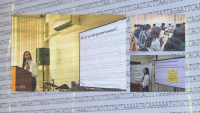The Core Facility for Bioinformatics (CFB) co-hosted a two-part workshop with the European Bioinformatics Institute (EMBL-EBI) on December 4 and 5, 2025.
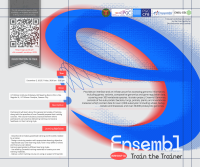
Ensembl Workshops: Genome Browser + Train the Trainers
CFB is co-hosting a two-part workshop with the European Bioinformatics Institute (EMBL-EBI) on December 4 and 5, 2025. The first day is the Ensembl Genome Browser Workshop, aimed at wet-lab scientists and bioinformaticians who are new to using Ensembl or have not yet discovered the power and depth of this resource. For the second day, the Ensembl Train the Trainer Workshop will provide the participants the general principles of training, along with the specifics of how Ensembl prepare their training courses.
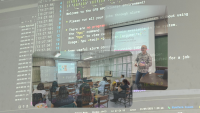
CFB conducts 16S rDNA Metabarcoding Data Analysis Training at UPM
The Core Facility for Bioinformatics conducts a training on 16S rDNA metabarcoding data analysis at UP Manila, College of Public Health.

CFB holds annual virtual Bioinformatics Training and Internship Program (BTIP) 2025
The Core Facility for Bioinformatics held its annual Bioinformatics Training and Internship Program (BTIP) on June 23 to August 8, 2025. The BTIP is a virtual training in introductory biology, genomics, and bioinformatics that provides supervised and hands-on experience doing research or infrastructure development on real bioinformatics projects. The mid-year activity is open to students and […]
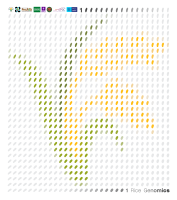
Decoding 1,001 Philippine traditional rice varieties (TRVs)
The joint initiative stands to deliver a huge amount of data from the genome sequences of the 1001 Philippine TRVs. This will be made available to the public via the PH Rice GDB. From strengthening local expertise in crop genomics and bioinformatics, to providing more research opportunities—the program anticipates its potential in increasing and strengthening research output and capacity. The 1001 Rice Genome (1k1RG) Program is a promise to the future of rice in the Philippines as it ultimately aims to benefit farmers through accelerating the improvement and production of rice varieties.
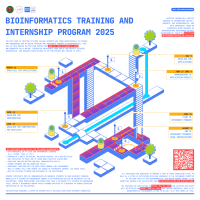
Bioinformatics Training and Internship Program 2025
Apply Now: BTIP 2025 The Philippine Genome Center (PGC) Core Facility for Bioinformatics is inviting Filipino college students and young professionals in science and engineering for an online training and internship program in bioinformatics. This will be held during the mid-year period from June 23 to August 1, 2025, and conducted fully online. Interested individuals […]

Call for Applications: PGC Bioinformatics Training & Internship Program 2024
CALL FOR APPLICATIONS Bioinformatics Training & Internship Program 2024 Accepted applicants will be notified on June 18, 2024, Tuesday.The schedule for notifying accepted applicants has been movedfrom June 14 to → June 18, 2024 Accepted interns will receive training in introductory biology, genomics, and bioinformatics. APPLY NOW Background The Philippine Genome Center (PGC) Core Facility […]

PGC poster presentations at the USJCMSP’s 24th EID Conference in Incheon, Korea
PGC researchers were invited to present their selected abstracts for a poster presentation during the United States-Japan Cooperative Medical Sciences Program (USJCMSP) 2024 International Conference on Emerging Infectious Diseases (EID).

Call for Applications: PGC Bioinformatics Training & Internship Program 2022
The PGC-Core Facility for Bioinformatics is inviting Filipino college students and young professionals in science and engineering for an online training and internship program in bioinformatics.

Call for Applications: Metagenomics Bioinformatics Workshop
The PGC Core Facility for Bioinformatics, together with Noveaulab and PacBio, are conducting a two-day online training workshop on the bioinformatics analysis of 16S metagenomic data using PacBio reads. This event will be held on April 18-19, 2022 (Mon-Tue) at 1:00-5:00 PM. Interested individuals from public and private colleges, universities, and research institutions in the […]

